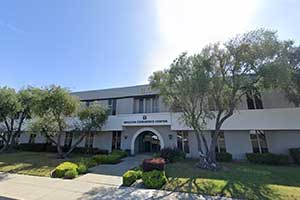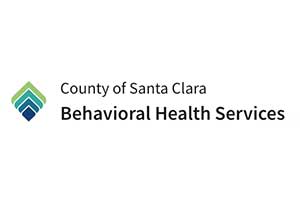
621 East Campbell Avenue
Campbell, CA. 95008
800-258-6550
Campbell, CA has several nearby treatment choices including: 0 low cost treatment center, 0 inpatient rehab center, 4 drug rehabs that take PPO insurance like Aetna, 0 drug and alcohol detox, 4 outpatient treatment programs.

For help finding an addiction treatment center, Call us!
All calls are 100% confidential and free
1-877-882-9275



Lyric Recovery Services Inc is 2.1 miles from Campbell, California
Lyric Recovery Services Inc has been providing recovery treatment to individuals who live in Campbell, California and who are struggling with drug and alcohol abuse disorders. As such, Lyric Recovery Services Inc offers a wide variety of services such as dual diagnosis drug rehab, trauma therapy, brief intervention approach, group therapy, trauma-related counseling, contingency management/motivational incentive and others using its unique approaches to addiction recovery and treatment.
This treatment center also believes that the best results for clients are gotten from individualized services. To this end, it has been specializing in a wide range of personalized treatments like aftercare/continuing care, housing services, legal advocacy, veterans, child care for clients children, clients referred from the court/judicial system and more. In the same way, this drug and alcohol rehabilitation program offers these treatments in the following settings - inpatient rehab facilities, outpatient substance abuse treatment services, short term addiction treatment facilities, long term drug and alcohol rehab facilities, inpatient detox centers and more.
Lyric Recovery Services Inc also ensures lasting sobriety and stability by promoting a robust aftercare program. Lastly, Lyric Recovery Services Inc accepts these payment forms - including private insurance, cash or self-payment, payment assistance, medicare, medicaid, county or local government funds, state welfare or child and family services funds and others.



Perinatal Substance Abuse Program is 2.3 miles from Campbell, California
Perinatal Substance Abuse Program has been providing recovery rehab to people who live in Campbell and who are battling with drug and alcohol abuse disorders. As such, Perinatal Substance Abuse Program offers a wide range of services such as dual diagnosis drug rehab, trauma therapy, brief intervention approach, group therapy, trauma-related counseling, contingency management/motivational incentive and others applying its unique philosophy of evidence based approaches to addiction recovery and treatment.
This treatment center also thinks that each client benefits most from individualized services. Because of this, it has been specializing in a wide assortment of personalized treatments like aftercare/continuing care, housing services, legal advocacy, veterans, child care for clients children, clients referred from the court/judicial system and more. In the same way, this addiction treatment center provides these services in the following settings - inpatient addiction treatment centers, outpatient day treatment, short term drug and alcohol rehabs, long term rehab programs, detoxification centers and more.
Perinatal Substance Abuse Program also ensures lasting sobriety and stability by promoting a robust aftercare program. Lastly, Perinatal Substance Abuse Program accepts these payment forms - including private medical insurance, private pay, payment assistance, medicaid, medicare, county or local government funds, state welfare or child and family services funds and others.
Substance Use Disorder, commonly known as addiction, is a complex disease that affects the brain and behavior. It's important to understand that addiction is not a matter of willpower or moral strength, and it doesn't reflect an individual's love or lack of love for their family. Here's why a person struggling with addiction might not simply stop, even if they deeply care for their family:
Altered Brain Function: Drugs can alter the brain's structure and function, especially in areas related to reward, judgment, decision-making, learning, and memory. This can lead to intense cravings and a compulsive desire to use drugs, despite knowing the harm they're causing.
Physical Dependence: Regular use of certain drugs can lead to physical dependence, where the body needs the drug to function normally. Stopping the drug can cause uncomfortable or even dangerous withdrawal symptoms, which can make quitting extremely difficult without medical help.
Psychological Dependence: Some individuals use drugs to cope with stress, trauma, or mental health disorders. These individuals may feel they cannot function or feel normal without the substance, and overcoming this psychological dependence can be challenging.
Fear of Withdrawal: Fear of the withdrawal process, which can be physically and emotionally painful, can deter individuals from quitting, even if they want to stop for their loved ones.
Denial: Many people struggling with addiction are in denial about the extent of their problem. They may not realize or admit how much their substance use is hurting themselves and their family.
Loving someone, even deeply, does not automatically grant the ability to overcome addiction. Recovery often requires professional help and involves more than just the decision to stop using drugs. It includes learning new coping skills, addressing underlying issues that may contribute to the addiction, and receiving ongoing support. With proper treatment and support, many people are able to recover from addiction and rebuild their relationships with their loved ones.
Substance abuse significantly increases the risk of suicide, particularly among vulnerable populations such as LGBTQ+ (lesbian, gay, bisexual, transgender, queer, and others) youth. This heightened risk stems from a combination of factors associated with both substance abuse and the unique challenges faced by LGBTQ+ youth. Here's a closer look at these factors:
Mental Health Disorders: Substance abuse often co-occurs with mental health disorders such as depression, anxiety, and bipolar disorder, which are known risk factors for suicide. LGBTQ+ youth experience these mental health conditions at higher rates than their heterosexual and cisgender peers, partially due to the minority stress they face.
Minority Stress: Minority stress refers to the chronic stress experienced by marginalized groups, including LGBTQ+ individuals. It can include experiences such as discrimination, stigma, bullying, and family rejection, which can increase feelings of hopelessness and contribute to both substance use and suicidal ideation.
Substance Use and Suicidal Behavior: Substance use can lead to increased impulsivity, decreased inhibition, and intensified feelings of despair, making a person more likely to attempt suicide. It can also exacerbate feelings of isolation and hopelessness, further increasing the risk.
Social Isolation: Many LGBTQ+ youth feel socially isolated, either because they are not out to their peers or because they face rejection after coming out. This isolation can lead to increased substance use and a higher risk of suicide.
Family Rejection: Family rejection related to an individual's sexual orientation or gender identity can lead to increased substance use and heightened suicide risk. LGBTQ+ youth who do not receive support from their families are particularly vulnerable.
Lack of Access to Mental Health Services: Many LGBTQ+ youth struggle to access mental health and substance use treatment services, which can help manage risk factors for suicide. Barriers to access can include lack of insurance, stigma, and a shortage of providers who offer LGBTQ+-inclusive care.
Intersectionality: LGBTQ+ youth who belong to other marginalized groups (e.g., racial/ethnic minorities) often face additional layers of discrimination and stress, which can further increase their risk of substance abuse and suicide.
Efforts to prevent suicide among LGBTQ+ youth include providing access to culturally competent mental health and substance use treatment, fostering supportive environments in schools and communities, and advocating for policies that protect LGBTQ+ youth from discrimination and harassment. It's also crucial to provide support for families of LGBTQ+ youth, as family acceptance has been shown to protect against suicide risk.
Opioid addiction is a chronic condition characterized by compulsive use of opioids despite harmful consequences. Recognizing the symptoms of opioid addiction can help in providing timely intervention and support for the affected individual. Some common symptoms of opioid addiction include:
National Non Profit Helpline - 1-877-882-9275
Our National Non Profit Helpline is a 24/7, 365-day-a-year treatment referral and information service for individuals and families faced with mental and/or substance use disorders.
All calls are strictly confidential
Our service provides referrals to licensed treatment facilities, support groups, and community-based organizations. You don't have to struggle alone with addiction. Help is just a phone call away. Call 1-877-882-9275 now to get the help you need and deserve.
© Copyright 1998 - 2022 All Rights Reserved. Content is protected under copyright laws, do not use content without written permission.